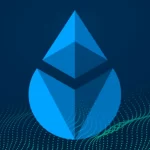The world of gaming is undergoing a profound transformation, driven by the advent of blockchain technology and the rise of decentralized applications (dApps). This innovative approach to game development is dismantling the centralized power structures that have long dominated the industry, empowering players to take ownership of their experiences and assets. Decentralized gaming, often referred to as “blockchain gaming” or “Web3 gaming,” represents a paradigm shift, ushering in a new era of transparency, player sovereignty, and economic opportunity.
The Rise of Decentralized Gaming
The roots of decentralized gaming can be traced back to the early days of the internet, when enthusiasts experimented with creating virtual worlds and communities that operated independently of centralized servers. These early pioneers laid the groundwork for the concepts of decentralization and player-driven economies in gaming.
The advent of blockchain technology, with its inherent immutability and distributed ledgers, provided a powerful foundation for decentralized game development. Blockchains enabled the creation of secure and transparent digital assets, such as non-fungible tokens (NFTs), which could represent in-game items, characters, and other assets. This innovation allowed players to own and trade these assets with true ownership, fostering a more engaging and immersive gaming experience.
Key Features of Decentralized Games
Decentralized games share several key characteristics that set them apart from traditional, centralized games:
- Ownership and Control: Players have true ownership of their in-game assets, which exist as NFTs on blockchains. This ownership empowers players to trade, sell, or use their assets as they see fit, free from the restrictions of centralized game developers.
- Transparency and Openness: The game’s rules and mechanics are governed by smart contracts, self-executing agreements stored on the blockchain. This transparency ensures that the game’s economy and gameplay are fair and predictable, eliminating the potential for manipulation by developers or third-party entities.
- Decentralized Governance: Many decentralized games incorporate mechanisms for player governance, allowing the community to participate in decision-making processes. This empowers players to influence the direction of the game and ensure that their interests are represented.
- Earning Opportunities: Decentralized games often incorporate play-to-earn (P2E) mechanics, rewarding players with in-game assets or cryptocurrencies for their participation. This creates a new economy where players can earn real-world value from their gaming activities.
Impact of Decentralized Gaming
The emergence of decentralized gaming is having a profound impact on the gaming industry and beyond. Here are some of the key impacts:
- Democratization of Gaming: Decentralized games are empowering players to take control of their gaming experiences, giving them ownership, decision-making power, and the ability to earn from their participation.
- New Economic Opportunities: P2E mechanics are creating new economic opportunities in the gaming sector, allowing players to generate revenue and build wealth through their gaming activities.
- Innovation and Creativity: Decentralized gaming is fostering innovation and creativity, as developers explore new gameplay mechanics, tokenomics, and governance models.
- Community-Driven Development: Decentralized games are often built and governed by the community, fostering a sense of ownership and engagement among players.
Challenges and Future Prospects
Despite the transformative potential of decentralized gaming, there are still challenges to overcome:
- Technical Complexity: Decentralized games often require a deeper understanding of blockchain technology and cryptocurrency, which can be a barrier to entry for some players.
- Gameplay and User Experience: Decentralized games still face the challenge of creating engaging and appealing gameplay experiences that rival traditional games.
- Regulation and Compliance: As the industry matures, decentralized games will need to navigate the evolving regulatory landscape and ensure compliance with relevant laws and regulations.
Despite these challenges, the future of decentralized gaming is bright. The technology is rapidly evolving, and developers are continuously innovating to create more engaging and user-friendly experiences. As the industry matures and attracts more mainstream adoption, decentralized gaming is poised to revolutionize the way we play, earn, and interact with the virtual world.
Conclusion
Decentralized gaming is a game-changer, fundamentally altering the power dynamics and economic models of the gaming industry. By empowering players, promoting transparency, and fostering innovation, decentralized games are ushering in a new era of gaming that is more equitable, engaging, and financially rewarding for participants. As the technology continues to develop and the ecosystem expands, decentralized gaming will undoubtedly shape the future of entertainment and revolutionize the way we interact with virtual worlds.























